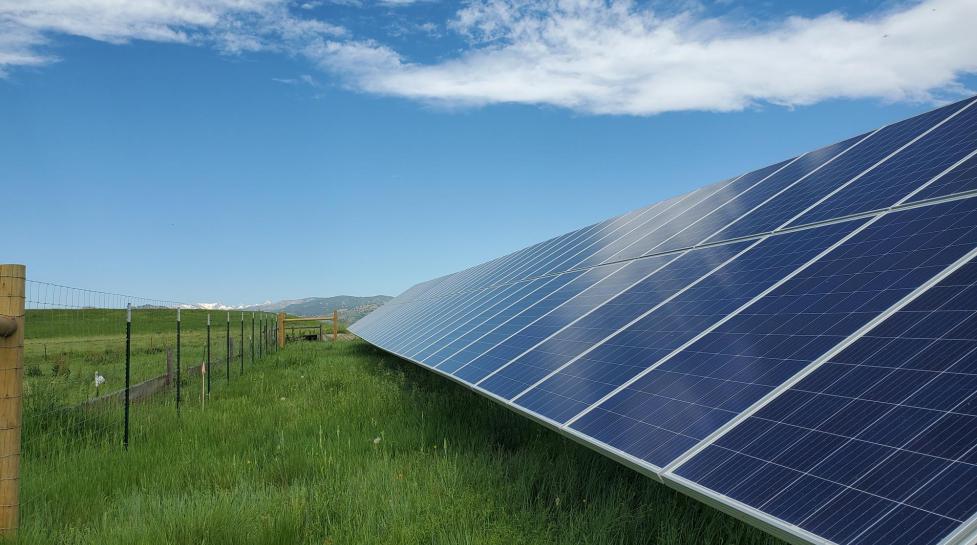Xcel’s Electric Resource Plan an Important Piece of Climate Strategy in Colorado and Boulder
What is Xcel’s Electric Resource Plan?
Every four years, Xcel Energy files an Electric Resource Plan (ERP) with the Colorado Public Utilities Commission (PUC). Through the ERP, Xcel presents its forecast for future electricity needs and its plans for the type and number of new power plants that must be built to meet future energy demand.
This process is important because Xcel’s proposals will affect the state’s ability to achieve its aggressive greenhouse gas reductions. It also has an impact for communities like Boulder that are served by Xcel and seek to achieve 100% renewable electricity by 2030.
Key aspects of Xcel’s application include:
- accelerated closure of coal plants, including strategies to re-invest in ways that mitigate job losses, and preserve the local tax base where coal plants are located;
- seven potential portfolios to meet or exceed the state’s requirement for 80% emissions-free electricity by 2030; and a
- proposal to investigate advanced technology solutions, such as molten-salt storage, carbon-free hydrogen and advanced nuclear power.
The planning process is a prime opportunity to provide input. Here’s what the city is advocating for and how you can participate.
Learn more about Xcel’s Clean Energy Plan online.
City Proposes More Renewables, More Flexibility to Achieve Local Goals
In October, the city provided testimony in response to Xcel’s initial application, both supporting strategies presented by Xcel, as well as offering suggestions for improvement.
The City of Boulder outlined approaches to:
- accelerate emissions reduction;
- reduce long-term reliance on natural gas; and
- ensure emissions accounting complies with and, ideally, exceeds state law.
"It is already well past time for Public Service and communities – in partnership – to take the next several steps necessary to build a 24 / 7 zero emissions generation portfolio well before 2050, said city’s Policy Advisor Matt Lehrman in his testimony. "The last resource plans left bids on the table that, if developed, could have produced zero emissions, firm, dispatchable generation had the business model and cost recovery mechanism been in place."
Part of the city’s testimony presents an opportunity to rapidly add new renewable electricity and to reduce the need for fossil fueled power plants. The city proposed new tools to:
- add large-scale solar, wind and battery storage;
- enable community participation in Xcel programs to align customer electricity usage with the availability of excess renewable electricity; and
- encourage customers to reduce electricity usage at the most expensive times of day.
Learn more by reading the city’s testimony.
How You Can Get Involved
While the city strives to represent the broad interests of our community through its testimony, it is also important for community members to share their views directly with the PUC.
The PUC will be holding three upcoming public comment events that will be open to anyone who is interested in participating. The dates for the event are:
- Oct. 26, Moffat County High School, Craig, 4 to 6 p.m.
- Oct. 28, El Pueblo History Museum – the Atrium, Pueblo, 4 to 6 p.m.
- Dec. 2, Remote public comment hearing, 4 to 7 p.m.
- To participate, call 346-248-7799
- Enter meeting ID 834 7935 7567
- Passcode 652541
- All public hearings and will be livestreamed on the Public Utilities Commission website.
- The Public Utilities Commission also accepts written comments from members of the public.
- Submit a written comment online with the PUC form.
- Reference proceeding number 21A-0141E.
- Access all the ERP filings at the PUC on the commission’s website. Search using proceeding number 21A-0141E.
Learn more about Xcel’s Clean Energy Plan and the city’s energy partnership with Xcel Energy.
